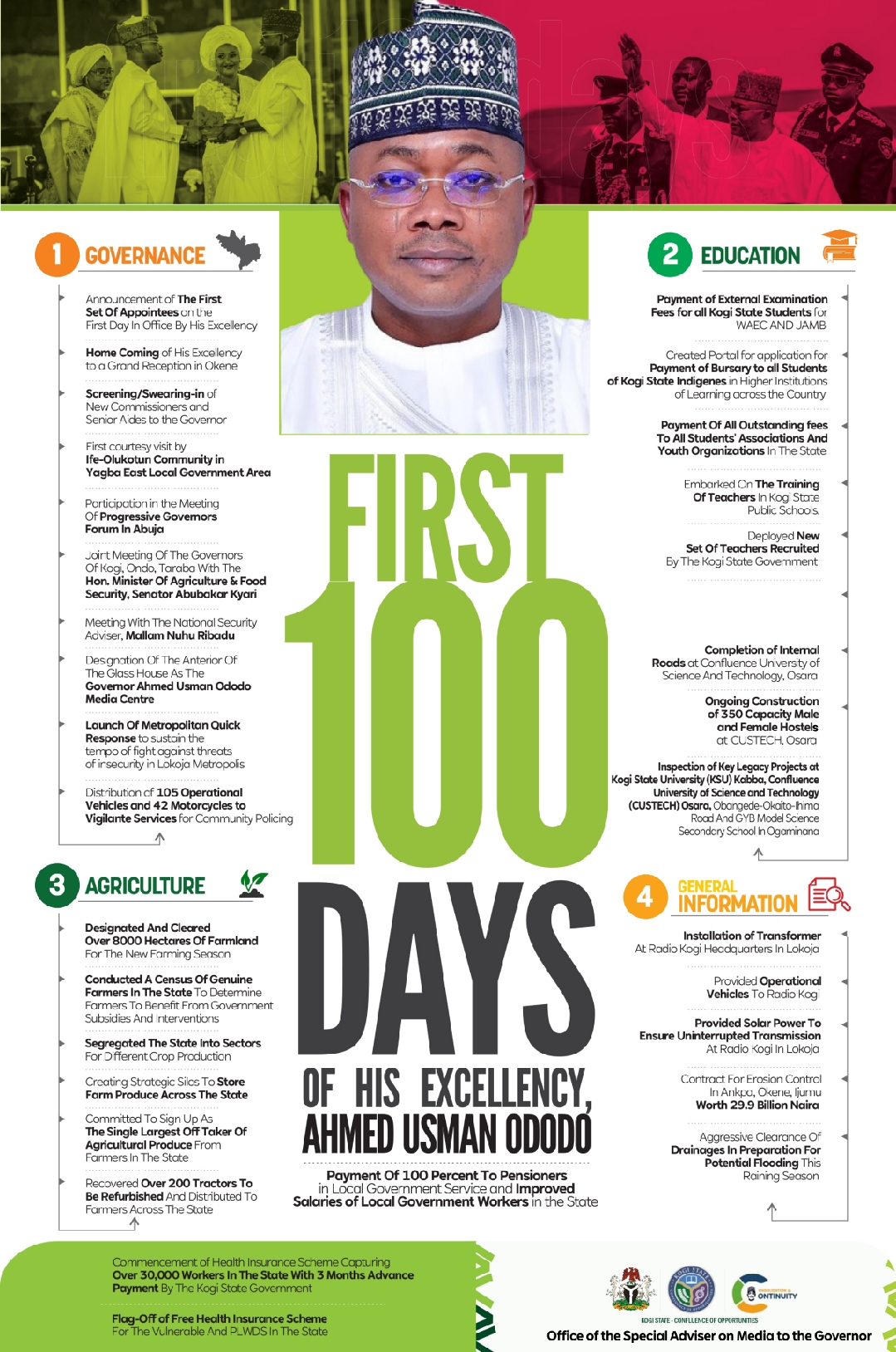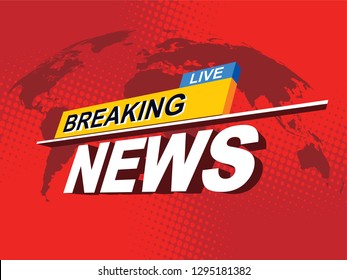
The Role of the Media in Setting Agenda for Legislators in Nigeria Being A Presentation by Mr. Temitope Joel at the Lecture Award program of Kogi State Assembly Press Corps.

ABSTRACT
The role of mass media for sustainable democracy cannot be overemphasized. Although, the primary responsibilities of the media is to entertain without slander or libel, inform based on accurate facts and educate on current relevant issues. Apart from these roles, development scholars and professionals have widely recognized the utility of mass media in the sustenance of viable democracy. Democracy is the most popular form of government particularly because it guarantees popular participation. Though, it recognizes and guarantees individual participation, it also derives its synergy from other institutions like the mass media. The mass media are supplying the political information that voters base their decision on. They identify problems in the society and serve as a medium for deliberation. It is against this background that this paper addressed the
“Role of Mass Media in setting An Agenda for Legislators in Nigeria” and concluded that the mass media have significant role to play in establishing stability and security as necessary environment for sustainable democracy in Nigeria. The mass media can be effective in establishing a good atmosphere were growth and development can take place, particularly in the elimination of ignorance which often leads to conflicts, especially in politics.
INTRODUCTION
The mass media constitute the brain box of democracy. The media help in the supply of the required political information that electorates would base their decision. They are the watchdogs for uncovering errors and wrongdoing by those in power (Fog, 2004; Kellner 2004). To argue about the media today is almost inevitably to argue about democracy. Furthermore, conflicting views of the history of communications often reflect the disagreements about democracy and its possibilities. Much of the foundational thought about mass media from the writings of Walter Lipmann and John Dewey in the 1920s and’30s to the work of Jurgen Hebermas and others in recent decades has held wide intellectual interest because of its implications for democracy and good governance. Has the media’s development advanced or devastated democratic aspiration? Or is the media a mere “phantom” in Lippmann’s phrase, or can it be an outstanding force in popular self-government if it can furnish the necessary information and means of criticism and debate (Paul, 2006; Walter and Dewey,
1925 and 1927).
Therefore, there is a growing concern about the mass media that they are not fulfilling some functions properly to enhance democratic ideals. Some media critics have claimed that commercial mass media controlled by a few multinational
conglomerates have become an antidemocratic force supporting elements of capitalism to further pauperize the masses. (Kellner, 2004: Mcchesney, 1999). Even if they disseminate news, the news is more of entertainment than information and education; rather the mass media prefer to supply sensational news such as sex, violence, fashion etc. The political news they
carry are more about personalities than about political ideologies. Therefore there is the absence of serious debate where
voters are left with paid political propaganda containing only meaningless slogans making them disinterested and cynical about politics (Barnett, 2002).
Critics also have complained that media as the watchdogs are barking of the wrong things. The media hunt for scandals in the private lives of politicians and their families, but ignore much more serious consequences of their policies. Therefore, it is against this back drop that this issue attempts to examine the nexus and the role of mass media in setting agenda for legislators in Nigeria.
CONCEPTUAL CLARIFICTION
In all academic research, concepts are often used with the intension of conveying meaning to the readers. A careful and proper operationalized concept gives a better understanding of the relationship between concepts. In this thesis, conceptual clarification/discourse of some concepts relevant to the study among is given; these are Mass Media, Agenda Setting and Legislation.
Mass Media
The mass media refers to the Entire Avenue through which information can be passed from one person to numerous, scattered and heterogeneous audiences. They also mean the vehicles through which messages, information, ideas, knowledge and culture are transmitted to a large audience. According to Nwosu (1996:11), cited in Afamuefuna (2007), mass media are a technical communication concept which refers to the devices employed by anyone involved in a mass mediated communication situation for moving messages across distance or time. Thus, the mass media are the major modern means of communicating simultaneously and sometime instantaneously with a large scattered heterogeneous and anonymous audience. These include radio, television, newspaper, magazine, and the internet.
Because the mass media are the only source of news for most individuals, the presence of democratic or special bias in the media may have profound effect. Public dependence on the media also gives them the power to set political or democratic agenda and determine which issues will be the subject of public debate.
Through the mass media, the citizens are educated on their rights and privileges so as to participate meaningfully in the democratic process (Mile, 2009).
Agenda-Setting
Agenda setting describes the ability of the news media to influence the importance placed on the topics of public agenda and establish a hierarchy of news prevalence. The agenda setting theory was made popular by the quote of Bernard Cohen (1963), saying that the press “may not be successful much of the time in telling people what to think, but it is successful in telling its readers what to think about”.
There is plenty of evidence that the media have a strong influence on people’s perception of which issues are important and which problems they want their government to do something about. The influence of news mass media increases when the need for orientation among the viewers is much. The need for agenda setting in democratic issues is necessary here. On the other hand, the agenda setting effect is lower for unpleasant issues that people can observe directly, as well as for other issues that the audience is well informed about.
The media have little power to set the agenda when people have sufficient political knowledge to counter argue the claims made by the media. Therefore the agenda-setting effect is stronger for concrete issues that are easy to visualize than for abstract issues. Agenda setting for issues of democracy must be concrete and result oriented not issues that are products of sentiments.
TYPES OF AGENDA SETTING.
There are three types of Agenda setting:
Public Agenda Setting: This is when the public determines the agenda for which stories are considered important.
Media Agenda Setting: This is when the media determine the agenda for which stories are considered important.
Policy Agenda Setting: When both the public and media agendas influence the decisions of public policy makers.
LEGISLATION
Legislation is the process or result of enrolling, enacting, or promulgating laws by a legislature, parliament, or analogous governing body. Before an item of legislation becomes law it may be known as a bill, and may be broadly referred to as “legislation” while it remains under consideration to distinguish it from other business.
Legislation can have many purposes: to regulate, to authorize, to outlaw, to provide (funds), to sanction, to grant, to declare and to restrict. It may be contrasted with a non-legislative act by an executive or administrative body under the authority of a legislative act.
Legislation is usually proposed by a member of the legislature (e.g. a member of Congress or Parliament), or by the executive, whereupon it is debated by members of the legislature and is often amended before passage. Most large legislatures enact only a small fraction of the bills proposed in a given session. Whether a given bill will be proposed is generally a matter of the legislative priorities of the government.
Legislation is regarded as one of the three main functions of government, which are often distinguished under the doctrine of the separation of powers. Those who have the formal power to create legislation are known as legislators
ROLE OF THE MEDIA IN SETTING AGENDA FOR LEGISLATORS.
Social Media networks offer policy makers(Legislators) the ability to access a wide range of information such as opinions, direct messages, debates and raw material for policy making that is wider in scope than mainstream media, which indicates how useful they can be in the policy making process (Lant, 2014). This broad use of social media, regardless of whether requested or spontaneous, offers the residents of a state, for example a Nigerian, an enormous open door for associating with policy making (Bekkers and Edwards, 2017).
Participatory Role
Social media networks enable many more people to participate in policy making, a greater opportunity for ideas to be exchanged, as well as an opportunity for knowledge and arguments to be advanced. The magnitude of social media usage, with some networks like Facebook registering almost a billion users is too huge to ignore. Lant (2014) further points out that the size and diversity of the population on social media platforms cannot be underestimated and calls for an evaluation of the role of these platforms on policy making.
Public Opinion Role
Recent advances in computing and data collection from social media networks has become easier, making it easier for these networks to inform policy formulation and evaluation (Battaglini and Patacchini, 2019). Kouam (2019) calls on policy makers to take a more technocratic approach to formulation, implementation and evaluation of policies, by making social media an optional source of public opinion.
The Innovative Role
The innovativeness that social media platforms provide has made possible the tendency to scrutinize all the steps of the policy making process in public organizations, and the necessity of policy makers engaging these platforms in deliberation can no longer be ignored (Lant, 2014). The rapid rise of social media platforms has made it possible for citizens to raise their voices and
The Watchdog Role
The media plays a major role in keeping the citizenry across different part of the country through it various channels and media handles to be abreast about the various events of the legislators especially during the formulation of policies. The primary task of the media, especially national media outlets is not and should not be function as a mouthpiece of any government body or particular candidate but to play a basic watchdog role to enlighten and educate the general public in an objective form.
Information Role
The media has plays an active role in setting an Agenda for the Legislators through the information activities often provides for the citizen. The media has actively played an active role in supply of basic information especially on policy making matters carried out by legislators and again publishing the acceptance and displeasure of the citizens regarding any policy made.
Social media platforms are relevant sources of information for policy formulators that have gained recognition among academics, since they are updated continuously, provide up-to-date indicators that are useful to policy analysts as well as implementers, and can also be used to optimize interventions, assist with surveillance, and identify the socially vulnerable, based on geographical location, and inform resource allocation. The authors established that at least two-thirds of all adults in some forty countries use internet, of which 76% are regular users of social media platforms, making these networks hard to ignore.
Appreciating further the role of the media in the Setting an Agenda for Legislators in Democracy include:
i. Convey information to the people with a view to let them know how the mandate they gave their representatives is being discharged.
ii. To provide a forum through which the governed could then react to government policies and activities.
iii. To provide such analysis as would enable the people to secure an adequate understanding and background to event
iv. To assist in the articulation and pursuit of the national interest.
v. To help strengthen the economic, social and political fabric of the nation.
vi. To provide informed criticism and viable alternatives to public policies.
vii. To monitor the performance of government with a view to preventing their deviation from clearly stated objectives.
viii. To provide the medium for transmitting knowledge and for educating the populace.
OBSTACLES TO EFFECTIVE MEDIA ROLE IN SUSTAINABLE DEMOCRACY
The socio-political problems of the media in Nigeria are enormous. The state of the economy at any point in time must have influence on media performance for sustainable democracy. In a way to perform their duties, the media institutions have to be maintained and the cost of maintaining such media institutions are enormous.
Defective communication system cannot possibly sustain democracy. This is because sustainability demands that media institutions should acquire all the necessary gadgets and equipment to facilitate their work. But rather what you find with many media houses are instrument that are old and unserviceable. The eventual outcome of this is that many media stations may not be able to transmit developmental news to sustain democracy (Obaitan, 2008; Sherem, 1989).
The impact of foreign media on news gathering in Nigeria can also be a stumbling block to sustainable democracy. The activities of most foreign media in this direction most times is compounded by what is described as “satellite tyranny” this
involved the direct broadcast through satellite television prograrmmes to homes across the world specifically been championed by the CNN of the united states. Another problem area for the media in sustainable democracy is the avalanche of laws restricting press freedom. Though the Freedom of Information Bill has been passed into law, media organizations must not relent in their opposition to all activities that may presently exist to hinder the growth of democracy. Internal standard and training of personnel is still a problem for press performance especially in a democratic environment.
RECOMMENDATION AND CONCLUSION
The impact of mass media in sustainable democracy in Nigeria cannot be overemphasized. Therefore, mass media must look for avenues to improve on the quality of information they disseminate in order to sustain Nigeria’s flagging democracy. Since democracy is about popular government and participation, the media institutions must play the role of providing strong link between those in government and the electorates by inculcating, articulating and constructively criticizing the policies and goals of the former and communicating the views and opinion of the latter. Media houses in Nigeria must assist in building and maintaining an environment conducive to democracy in the country.
Media must promote free choice of leadership, especially through the ballot box; respect for the rule of law by both the rulers and the ruled; social justice and equity as well as respect for human right.
To sustain democracy, the media must maintain its independence while still being responsible; the media must operate an effective system of self-monitoring and self –supervision.
Since the freedom of information bill has been passed, public officials must grant the media access to public information as a constitutional matter.
Journalist should be well trained so that they can function positively in promoting development within the culture of democracy.
Our media in Nigeria have an important role to play in this present democratic dispensation by allowing for orderly succession of civilian to civilian administration. It is by so doing that democracy can fully be sustained and beyond (Dialogue 15, 1991).
Finally, the media institutions have a lot role to play in ensuring stability and sustainable democracy in Nigeria. This problem has impeded development in Nigeria. The media can be alive to their responsibilities by effectively establishing an enabling environment where democracy can strive particularly in the eradication of ignorance which often leads to conflict especially in our electioneering process.
REFERENCES
Altheide, D.L. (2002). Creating Fear: News and the Construction of Crisis. Aidine de Gruyten, New York.
Athanasios, I.B. (2007). “Governance and Democratic Procedures in the Information Society. Era Journal of Social Sciences 3(3): 123-126
Ball, A.R. and B.P. Guy (2001). Modern Politics and Government. Athens, Papazisis Publication, pp: 104.
Barnett, S. (2002) Will a Crisis in Journalism Provoke a Crisis in Democracy? The Political Quarterly 73:400-408.
Barrett, S. Jarvis W.T. (eds) (1993). The Health Robbers: A Close Look at Quackery in America. Prometheus: Buffalo.
Berstein, S (2001). Democracies, Regimes Authoritarians et Totalitarianisms Au xxe Siècle. Athens: Poiotita Publications, pp: 54
Capella J. N, Jamieson, K. H. (1997). Spiral of Cynicism: The Press and the Public Good. Oxford University Press.
Cirino, R. (1973). Bias through Selection and Omission. In Cohen S. Young J (eds) The Manufacture of News. Beverly Hills:Sage
Cohen, B. (1963). The Press and Foreign Policy. Princeton University Press.
Domke, D. Shah, D.V et.al (1998). Media Priming Effects: Accessibility, Association, and Activation. International Journal
of Public Opinion Research 10; 51-74
Egbewole, W.O. (2001). “Power, Control and Limitation of legislative over Public funds” Paper presented to Osun State House of Assembly. Osogbo.
Egbewole,W.O. (2006). “The Place of the Judiciary in the Sustenance of Democracy” in Democracy and development in Nigeria (eds) Saliu et.al. A Publication of the Faculty of Business and Social sciences Volume one.
Entman, R. M (1993). Framing: Toward Clarification of a Fractured Paradigm. Journal of Communication 43:51-58 Farm House Dialogue 15 (1991)
Fog, A. (2004). The Supposed and the Real Role of Mass Media in Modern Democracy. A Working Paper for J+L 2Classification B 52.
Goidel R.K, Shields T.D, and Peffley, M. (1997). Priming Theory and RAS Models: Towards an Integrated Perspective of Media influence. American Politics Quarterly 25:287-318.
Graber D.A (1988). Processing the News: How People tame the Information Tide. 2ndedition. Lanham, Maryland: University Press of America.
Hama link, K. (2003). Cultural Autonomy in Global Communication, white plains: Longman.
Heid, D. (2003). Models of Democracy. Athens: Poly tropon Press pp: 29
Hetherington, M. J (1996). The Media’s Role in Forming Voter’s National Evolutions in 1992. American Journal of Political Science 40:372-395
Iyengar, S. Reevers R (eds) (1997). Do the Media Genera? Politicians, Voters, and Reporters in America. Thousand Oaks,C.A: Sage.
Iyengar, S Peters M.D, Kinder, D.R. (1982). Experimental Demonstrations of the “Mot-so-Minimal” Consequences of Television Programmes. The American Political Science Review 76:848-858



